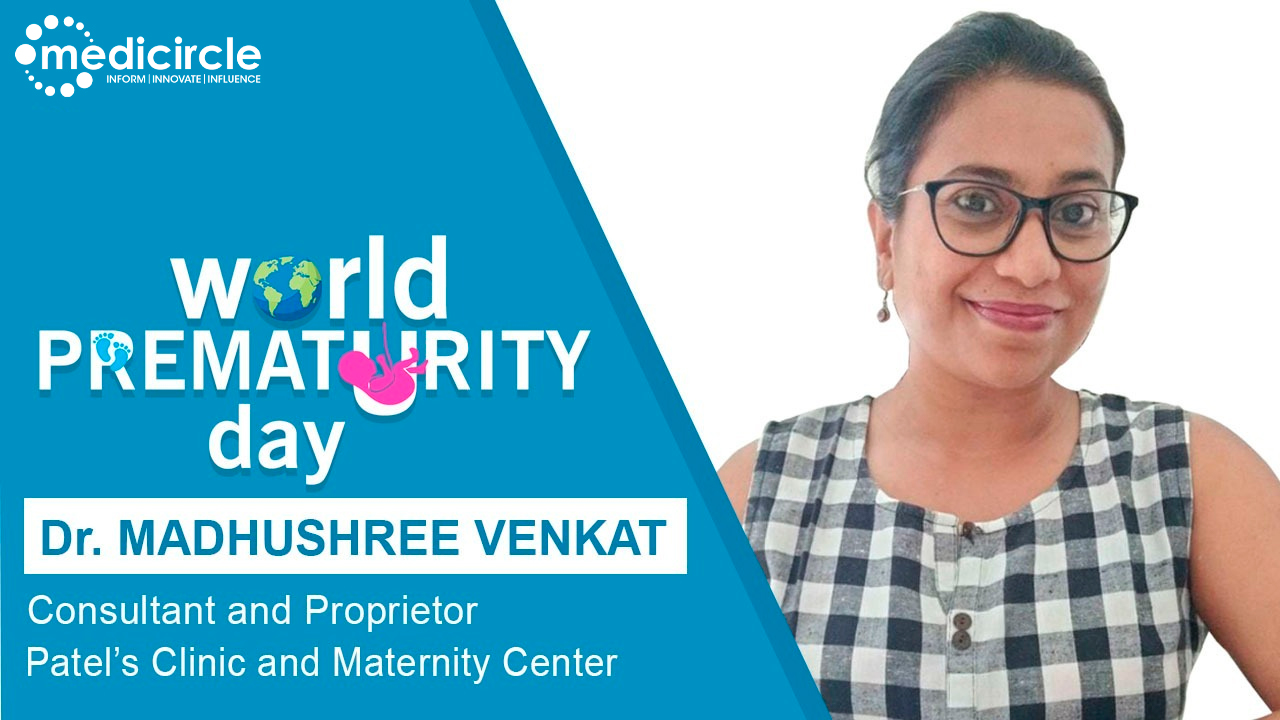Preterm birth is when a baby is born too early before 37 weeks of pregnancy have been completed. Premature birth is a very serious health problem and a leading cause of death among children younger than five years worldwide. Premature babies have more health problems than babies born on time and may experience long-term health problems that affect the brain, lungs, hearing or vision.
Worldwide, more than 1 in 10 babies are born prematurely each year, resulting in an estimated 15 million preterm births per year. Across 184 countries, the rate of preterm birth ranges from 5% to 18% of babies born. In India, out of 27 million babies born every year (2010 data), 3.5 million babies born are premature and over 300,000 of these preterm babies die each year because of associated complications.
The World Prematurity Day is annually observed on November 17th to raise awareness about this serious health crisis. On this day, several webinars and events are being conducted to highlight the critical importance of neonatal care during this vulnerable period of life. We at Medicircle are conducting World Prematurity Day Awareness Series wherein we will be featuring experts in this field to understand and create more awareness about premature birth.
Dr Madhushree Venkat is working as a Consultant and Proprietor at Patel’s Clinic and Maternity Center, Airoli. She can perform procedures that include diagnostic laparo-hysteroscopic procedures, Non-descent Vaginal hysterectomies and Abdominal hysterectomies, Uro-gynecological procedures, MTP’s, Artificial Reproductive Techniques (IUI, Ovum pick up, embryo transfer). She received Dipa Patel Award for best paper oration- Laparoscopic Tubal Recanalisation. She is a life member of FOGSI, NMOGS (Navi Mumbai Obst and Gyn soc.) & the Indian Society of Assisted Reproduction (ISAR).
What is Prematurity?
Dr begins, "9 months or 280 days of pregnancy is called a full-term pregnancy. Any delivery that happens before 37 weeks of gestation is called a preterm delivery."
Common risks in Premature births
Dr explains, "Anytime a woman conceives at any extreme age, too young or too old, then there is the risk of premature delivery. Too young is anyone below 18 years of age and too old is anyone above age 30-35."
"Another risk factor is a lifestyle. Nowadays everyone is too career-oriented. This makes them marry late and conceive late. As the age increases so do the chance of premature delivery increases. Habits like smoking and drinking also affect the pregnancy."
"Infections also cause preterm delivery. Covid is a major cause of preterm delivery in today's time. If the woman has undergone cervical surgeries or abortions, then they too can cause premature birth."
How to rule out the chance of premature delivery?
Dr mentions, "In pre-conception counselling, there are important investigations that we do to help the woman. We first ask whether the woman has taken all her vaccines, if not it is better to take vaccines before she conceives. In the next step, we check for any infections and then address the necessary precautions towards it."
"We recommend women to conceive at 20+ age to have better reproductive health. Similarly, when women want to conceive at 30+ age, we inform them of the associated risks of conceiving at that age. We also recommend having a nutritional diet and a healthy lifestyle. They should also have optimal weight before conceiving."
How to take care of not having a premature delivery again?
Dr says, "Let's say, a woman already had a preterm baby. Then for her next pregnancy, there is again the risk of having a premature delivery due to an anatomical deficiency in her cervix. In such case, routine checkups are a must, as with sonography we doctors will be able to pick up any signs."
"Then there are some procedures that can help the mother carry the baby till full-term, like the cervical stitch. Then there are medications that we recommend along with rest."
"When it comes to having twins, it is a known fact that the delivery will happen at 30-32 weeks of gestation. This is unchangeable. But what we need to do is to prepare the mother mentally."
"Preterm delivery is financial and emotional stress for the parents. Premature babies often need NICUs which can drain one's financial resources. While in the NICU, the mother would not be able to meet the baby, which can cause emotional stress on her."
The biggest myth of premature birth
She says, "People believe that care at home alone without any medical help can stop preterm birth. That is not true. Getting medical advice is really important. With medical care, we can save a baby as young as 26 weeks of gestation."
(Edited by Priyal Shah)

 Before conceiving your child here are some things every woman should know about. These tips would help you understand the risk of conceiving at an extreme age and the things one could do to avoid them.
Before conceiving your child here are some things every woman should know about. These tips would help you understand the risk of conceiving at an extreme age and the things one could do to avoid them. 




.jpeg)
.jpeg)

.jpeg)
.jpeg)
_(1)_(1)_(1).jpeg)
_(1).jpeg)
.jpeg)

.jpeg)





.jpeg)

.jpeg)

.jpeg)
.jpeg)

.jpeg)




